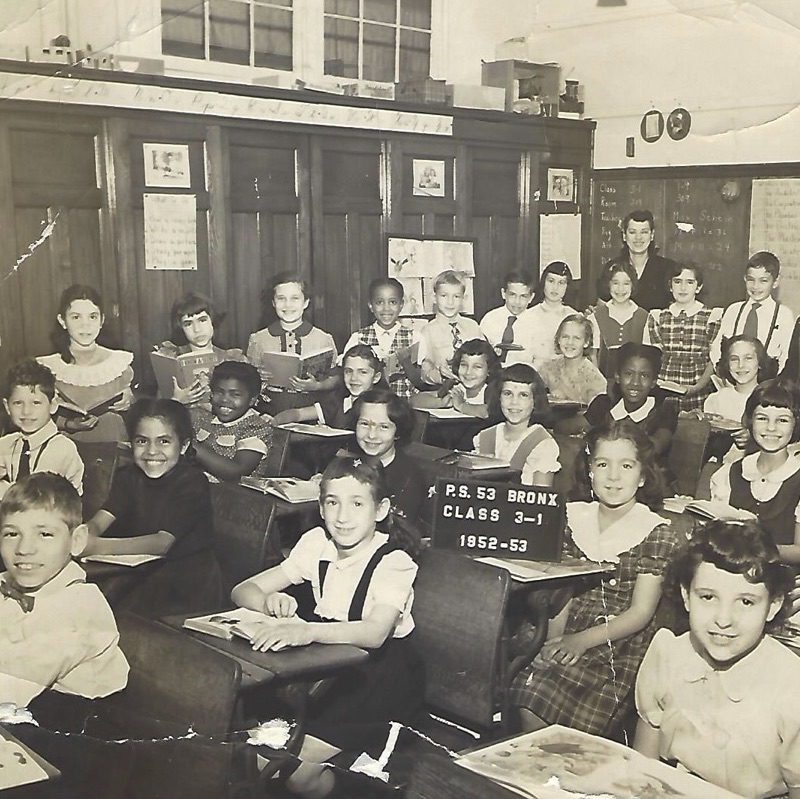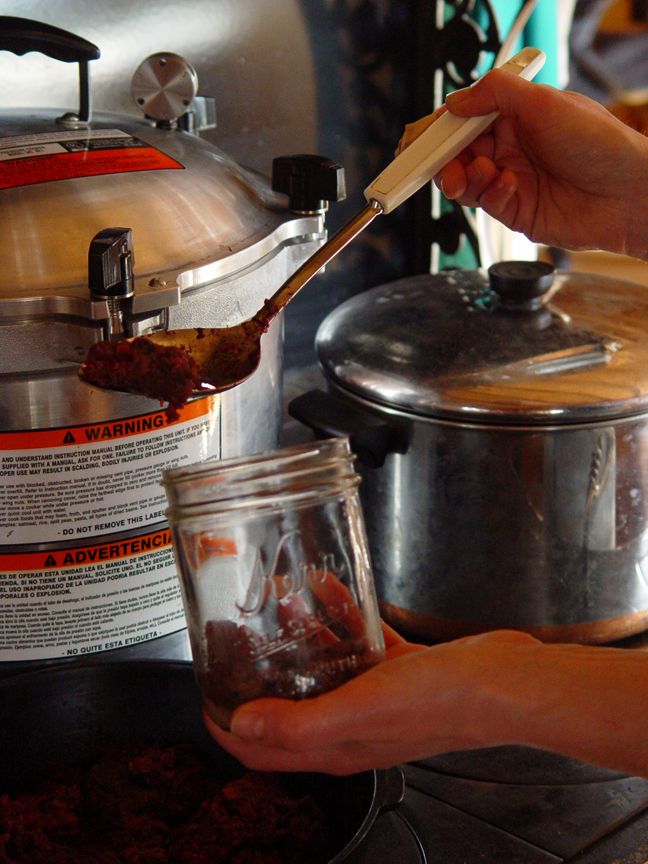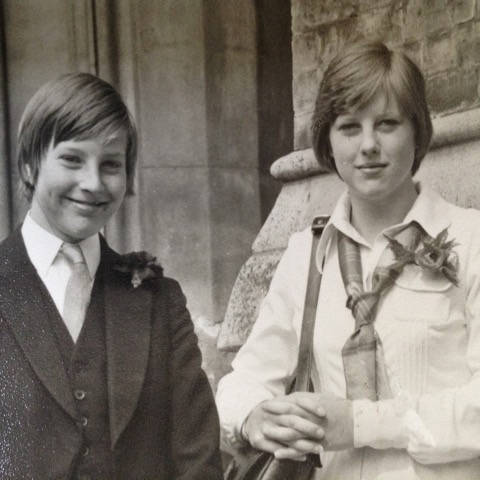Mother. To me, it is a word defining someone who is strong and stubborn. It is a word describing someone who raises an eyebrow in irritation and gives looks of contempt in an effort to gain attention. The word mother means someone who rarely feels sympathy and who fails to be empathetic unless there is an audience to watch. She pays attention to attention.
Being a woman meant reacting with anger to embarrassing situations, casting judgment on everything. No one was worthy of attention, and no one was important enough to merit an apology.
There was a time in a Wal-Mart when I was about seven years old that my mother had her sights set on buying a large tent. It was the last one on the shelf, sitting in its dented and wrinkled box. She loaded it into the cart, and I followed after her, not paying attention to the two women who had been standing near us.
“Hey!” one of the women said, skirting in front of our cart. “That’s our tent!”
My mother eyed the woman coolly, and I could feel the tension rise into the air as she prepared for battle. “It was on the shelf,” she said, and I was certain that only I could hear the danger in her voice.
“We were just getting our cart,” the woman replied. She was taller than my mother, and much wider. I wished that I could tell her not to bother puffing up, that she was facing an impossible adversary.
“How many of you does it take to get a cart?” my mother asked, tilting her chin up.
“We were right there!” The woman pointed at their cart that was not far from where the tent had been.
“Listen, you fat bitch,” my mother said evenly. “The tent is in my cart, and it’s mine. Don’t cry to me if it takes the brain power of two of you to get a cart.” She jerked her head at me and heaved the cart forward, barrelling the woman out of the way. I followed her, my head down as I hurried past the shocked faces of the people who were watching us.
When I was a child, I thought that I had to be just like her.
Her tools were the ones that I started packing into my toolbox as a child, right from the moment when I could interpret tone and body language, and that’s the toolbox that I carried with me as a teenager. My mother was the strongest person I knew; she intimidated people even though she was all of five feet, three inches tall. I wanted to be that strong, to be that sure of myself, and to have men fall all over me even if I threw them into the mud and walked over their backs.
“Marry for money,” my mother always told me. “You’ll be a lot happier than if you marry for love, and sex is only good for men, anyway.”
It wasn’t until my teens that I started to realize what it meant to be such a strong woman, came to notice that a little bit of spiced rum in my mother’s coffee in the morning was the way to start the day. Up to that point, it had never struck me as an odd thing to stir Kahlua into a glass of milk.
“I’m in pain,” she said when I asked her about it. She said the same thing about smoking pot, and then the same excuse when she began an online affair while her husband was trucking in the States.
“I think he really loves you,” I told her of my stepfather. I couldn’t help it; he was a man who was always good for a hug and a smile, and I felt sorry for him, like he was just too stupid and good to realize that my mother didn’t love him back.
“Of course he does,” she replied. “Lots of men would love to have me.”
Still, I was loyal to her. She was my mother, my pillar, my one and only rock in a world that teetered on thin stilts. I lent her money when she lied to me about needing groceries, knowing full well that the money was for booze, cigarettes, and pot. If we weren’t there for each other, who would be there for us?
The truth that I must have known, somewhere in the back of my mind, kept itself well-hidden, peeking through the balusters of the banister, waiting for the opportune moment to shyly raise its hand. Truth was as timid with me as everyone else was with my mother, and I didn’t hear its quivering voice until one night when I wasn’t quite sixteen years old, bed-ridden from being as sick as I’d ever been. It was early evening when I woke with blurry eyes, but also with a miraculously settled stomach. I drew back the curtains of my basement window and squinted outside to see the weather, or maybe to check the time of day, when I saw my boyfriend’s truck in the driveway.
It was quite a surprise for a few reasons that played through my head like an over-stretched cassette tape. He hadn’t stopped by to see me since I’d gotten sick, not that I could blame him. I also hadn’t heard from him by phone. I wasn’t old enough at the time to say that it was my woman’s intuition that made my heart speed up and my palms sweat; rather it was that little voice of truth finally speaking up. Every creak of the stairs was like a mocking whisper that got louder with each step, until it was suddenly silent as I stepped onto the landing. The only sound was that of soft moans coming from the end of the house, coming from my mother’s bedroom.
Then I heard him.
I froze at the hallway entrance, my brain scrambling to come up with excuses and explanations: She’s in pain; she’s drunk; I’m a virgin. I hate them.
I tried to boil over. I tried to scream and stomp and throw lamps, and come up with excuses for why. But I couldn’t. I was numb all over, my palms were cold, and I was shivering. It was raw pain, the kind that strangles all other emotions and causes the heart to ache. That was when I realized that my fearsome, aggressive mother wasn’t as angry as she pretended to be, that she wasn’t as tough as she wanted us to believe. She was afraid, insecure, a drunk.
I was left empty. I reached for something, but my toolbox was empty, turned upside down. The pillar that I had always turned to was the thing that was causing the ground to tremble, and I was left teetering on a ledge by myself with nothing to hold.
I turned and went back down the stairs to my bedroom, where I sat for the better part of half an hour. Tears wouldn’t come; it was just a numb, distant feeling of betrayal and pain. But I wasn’t angry. I couldn’t be angry, because I didn’t know how to be angry at someone whom I had just realized was weak and insecure. She was a self-destructive disaster who took everyone down with her. Her anger didn’t really exist, and if everyone knew what a mess she was, nobody would fear her – they would pity her, just as I was pitying her then. I pitied her, and I pitied myself, for it felt like a large chunk of who I was had been gouged out, and I didn’t know who to be anymore.
In carefully crafted, large letters, I wrote a quick note to my mother. It was disconnected, like I was telling her that I was going for a walk to the store. When I went back upstairs and placed it beside the bottle of rum, I could still hear them from down the hallway, and that’s when the tears started to sting my eyes.
I returned to my bedroom and stuffed some clothes into a backpack, my illness all but forgotten. The new feeling in my stomach was unidentifiable. When I stepped into the evening air, it was like taking my first breath and placing my first useful item into my toolbox, my first real lesson in becoming a strong woman.
Mother. She was the trembling pillar that sat upon a cracking foundation, balancing precariously on a degenerating edge. I imagined that she was smiling at me with condescension when I opened the front door to leave, but as I walked away, I felt that deprecating smile begin to fade as she realized that I wasn’t going to look back. Along with my backpack, I carried my nearly empty toolbox with me, and, for the first time, I realized that was all I needed.
I called her more than a month later, wondering if she was worried about me, if she missed me.
“You don’t have a mother, you’re an orphan,” she spat at me.
Hearing her voice brought up a tired sigh from somewhere deep within me, and her words cut into my heart. “Okay,” I said, and hung up on the venomous words that continued to spill over the line. I wiped my tears with the back of my clammy hand and stared at the dark room in a friend’s house that had become my home. I went to the window and drew back the curtain, squinting at the sudden light, and I realized that my mother was just a dark shroud that had covered my world before, just like the curtain. I’d talk to her again, in time, but I’d never let her draw the curtains closed again; she had finally given me a useful tool--resilience--and I would use it to face the world.
Megan Sheldon is a freelance writer residing in London, Ontario. She is currently working on her first novel.






